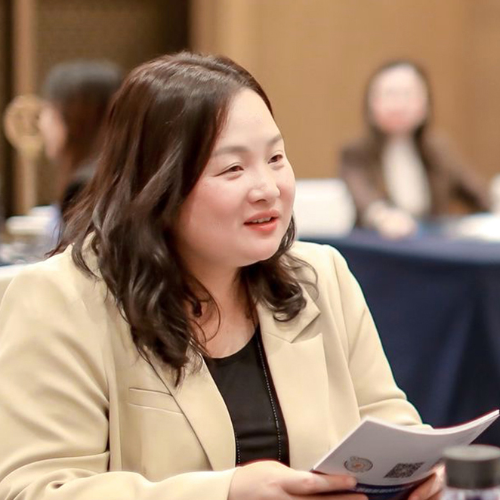However, this can lead to a false sense of security, which over time – as differences begin to surface – gives way to bewilderment and confusion. There are complex rules of engagement that govern behaviour among Filipinos, and failure to be sensitive to them can cast you unwittingly in the role of the ugly foreigner, ranting and raving with frustration at everyone from the bellhop to the bank teller. Understanding the cultural nuances and following key tips for traveling in the Philippines can help you navigate these situations with respect and ease.
Filipino etiquette
One of the major controlling elements in Filipino society – undetected by most visitors – is hiya, a difficult word to define, though essentially it means a sense of shame. Hiya is a factor in almost all social situations. It is a sense of hiya that prevents someone asking a question, for fear he may look foolish. It is hiya that sees many Filipinos refuse to disagree openly, for fear they may cause offence. To not have hiya is a grave social sin. To be accused of being walang-hiya (to be shameless) is the ultimate insult. Hiya goes hand in hand with the preservation of amor-propio (the term literally means “love of self”), ie to avoid losing face. If you ever wonder why a Filipino fails to broach awkward subjects with you, or to point out that your flies are undone, it is because hiya and amor-propio are at work.
If you are ever in doubt about how to behave in the Philippines, bring to mind the value of pakikisama, which in rough translation means “to get along”. Don’t flaunt your gauche liberal values and don’t confront the waiter or bark insults if he gets your order wrong. This offends his sense of amor-propio and marks you out as being an obnoxious walang-hiya foreigner. Talk to him quietly and ask that the order be changed. The same rules apply with government officials, police, ticket agents, hotel receptionists and cashiers. If there’s a problem, sort it out quietly and patiently. A sense of delicadeza is also important to Filipinos. This might be translated as “propriety”, a simple sense of good behaviour, particularly in the presence of elders or ladies.
Yes, no, maybe…
One of the root causes of frustration during social intercourse is the use of the word yes. In their desire to please, many Filipinos find it difficult to say no. So they say yes instead. Yes (actually oo in Tagalog, pronounced oh-oh, though most Filipinos would use the English word when talking to foreigners) can mean one of a multitude of things, from a plain and simple “yes” to “I’m not sure”, “perhaps”, “if you say so”, or “sorry, I don’t understand”. A casual yes is never taken as binding. The concepts of hiya and amor-propio also filter through to the language in the form of a multitude of euphemisms for the word no (hindi in Tagalog). Instead of replying in the negative, in order not to upset you a Filipino will typically say “maybe” (siguro nga), “whatever” (bahala na) or “if you say so” (kung sinabi mo ba e). These subtleties of language are symptomatic of the unseen ebbs and flows of the tides that govern all social behaviour in the Philippines, few foreigners ever fully coming to terms with the eddies and whirls underneath.
Questions and greetings
Filipinos are outgoing people who don’t consider it rude to ask personal questions. Prepare to be pleasantly interrogated by everyone you meet. Filipinos will want to know where you are from, why you are in the Philippines, how old you are, whether you are married, if not why not, and so on and so forth. They pride themselves on their hospitality and are always ready to share a meal or a few drinks. Don’t offend them by refusing outright.
It’s still common for foreign men to be greeted by passers-by with calls of “Hey Joe!” This harks back to the GI Joes of World War II and American occupation.
Filipino time
Why do you never ask a Filipino to do something by the end of the week? He might think you’re being pushy. That’s an exaggeration of course, but beyond the cities, the old joke still resonates for longtime residents of the Philippines.
In recent years, perhaps due to the number of young Filipinos returning home after an overseas education, the attitude towards punctuality has begun to change. For medical or work-related appointments you’ll need to be on time, but for social gatherings turn up half an hour late: it is considered impolite to be on time for a party, for instance, simply because it makes you look like a glutton who wants to grab the food. The speed of service in restaurants in the Philippines has also improved, but you should still expect your patience to occasionally be tested.
Gay and lesbian travellers
Few Filipinos, even the most pious, pay much heed to the Catholic Church regarding homosexuality, and the prevailing attitude is that people can carry on doing what’s right for them. Gay culture in the Philippines is strong and largely unimpeded by narrow-mindedness, with the possible exceptions of politics and the military, where heterosexuality is still considered correct. Gays are respected as arbiters of fashion and art, and beauty parlours are often staffed by transsexuals.
The word bakla is used generically by many Filipinos and visitors to the Philippines to refer to gays, but that would be inaccurate. A bakla considers himself a male with a female heart – a pusong babae. Most are not interested in a sex-change operation and consider themselves a “third sex”, cross-dressing and becoming more “female” than many women. Another category of male homosexual is known as tunay ne lalake, men who identify themselves publicly as heterosexual but have sex with other men. Homosexuals who aren’t out permeate every stratum of Philippine society; rumours circulate almost daily of this-or-that tycoon or politician who is tunay ne lalake.
Lesbians are much more reticent about outing themselves than gay men, no doubt because there is still societal pressure for young women to become the quintessential Filipina lady – gracious, alluring and fulfilled by motherhood and the home (see Women travellers). Indeed, some Filipina lesbians complain that the more outspoken tomboys – lesbians are often referred to as tomboys – make the fight for women’s rights even harder.
The gay scene is centred on the bars and clubs of Malate in Manila, though there are also smaller scenes in other major cities such as Cebu, Davao and Cagayan de Oro. The websites wwww.utopia-asia.com and wwww.fridae.com are useful sources of info on local gay life.
Women travellers
Women travellers rarely experience problems in the Philippines, either travelling alone or as part of a group. The culture, however, is a macho one and, especially in the provinces, foreign women may experience being stared at or the occasional catcall or lewd comment in Tagalog. In the barrios, Filipino men hold dear the oft-regurgitated image of themselves in local movies as gifted romancers, able to reduce any lady to jelly with a few choice words and the wink of an eye.
Reacting to this attention is the worst thing you can do. If you smile and remain good-natured but distant, your potential suitors will get the message and leave you alone. To shout back or to poke fun, particularly if Romeo is with his friends, will cause him serious loss of face and lead to resentment and the possibility that they will try to get back at you.
Modesty is essential to the behaviour of young Filipinas, especially in the provinces, and this should also be the case with visitors. Shorts and T-shirts are fine for women anywhere, but bikinis are only for the beach, and even then, it’s considered bad form to wander through a resort’s restaurant or souvenir shop without covering up first (a sarong is perfect for this). Topless sunbathing is unheard of among Filipinos, and tourists in popular resorts such as Boracay who remove their clothes are likely to attract an amazed, gossiping crowd of locals. For some Filipino men this reinforces the stereotype that foreign women on holiday are game for anything.
Getting ready for the Philippines? From food safety to mosquito advice, our Philippines health tips will help you avoid the stuff that can really mess up your trip.




